Advanced electromyography testing that pinpoints exactly what’s causing your symptoms so you can move forward with the right treatment.
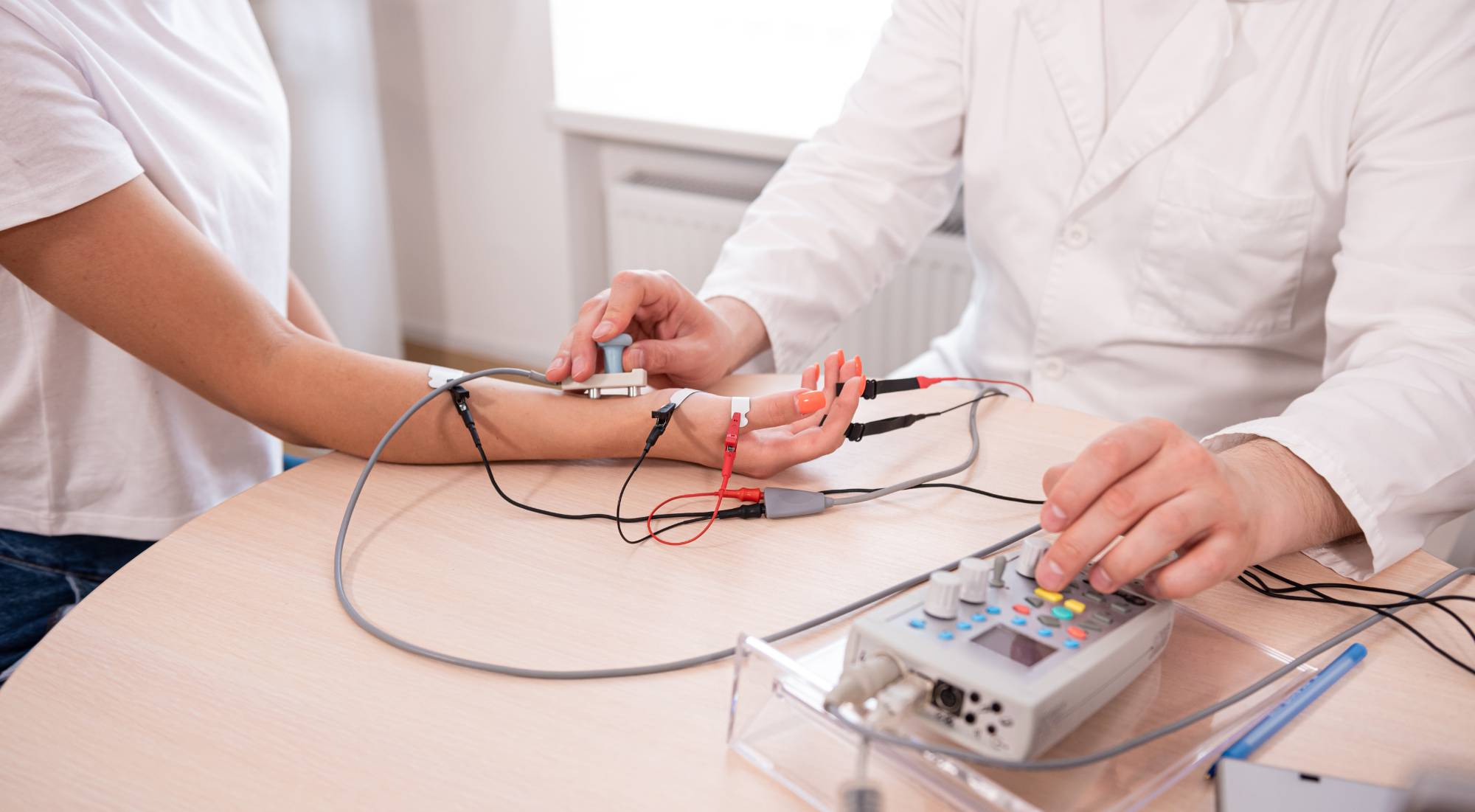
Reviews
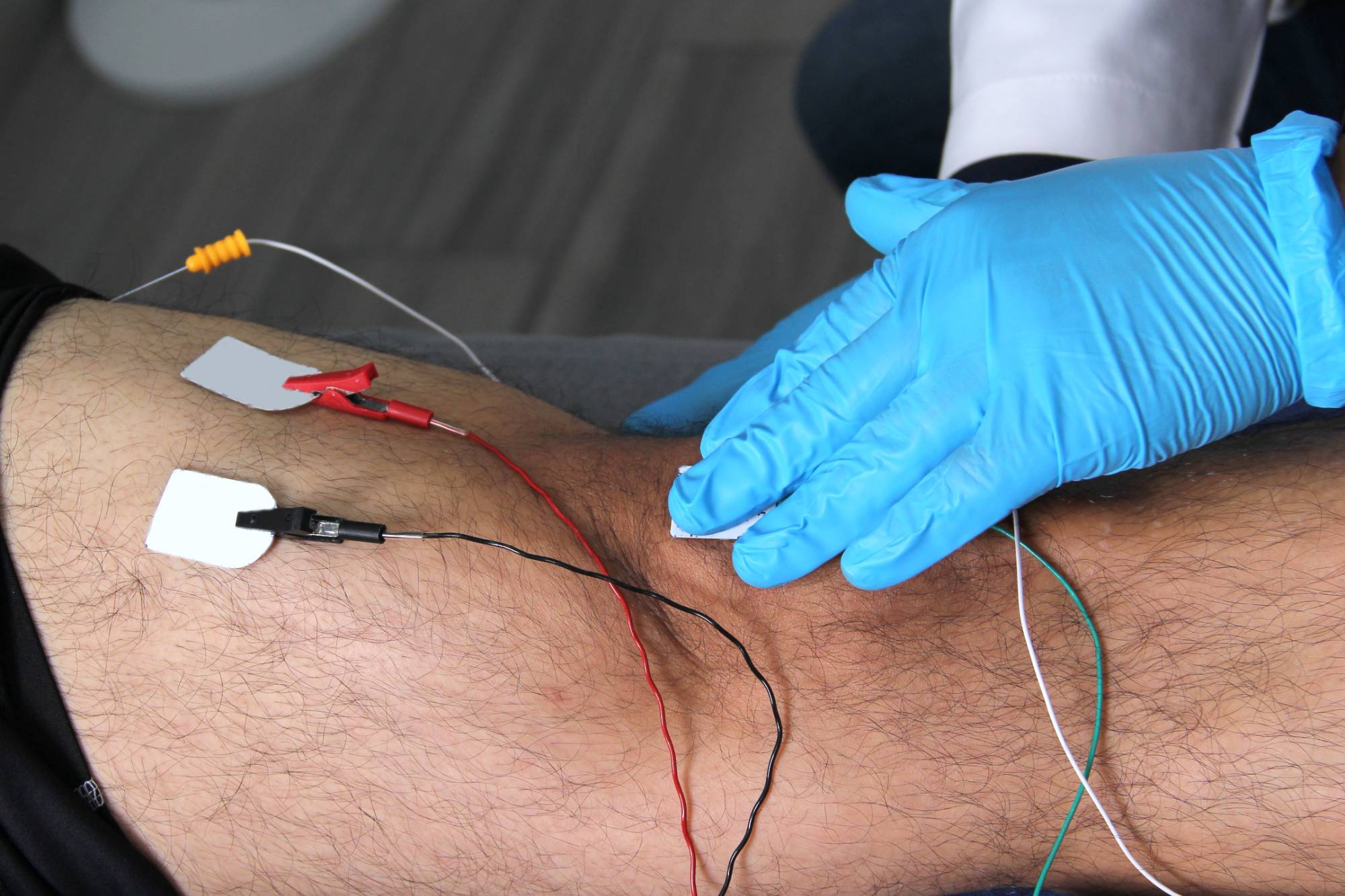
You’ve been dealing with numbness, tingling, or muscle weakness long enough. EMG testing gives you the precise diagnosis you need to understand what’s happening in your body.
This isn’t guesswork. Electromyography measures exactly how your nerves and muscles are functioning, showing us where the problem is and how severe it might be.
When you know what you’re dealing with, you can make informed decisions about treatment. No more wondering if it’s carpal tunnel, a pinched nerve, or something else entirely. You get clear answers that lead to targeted solutions.
We at NY Spine Medicine have been helping patients in Franjo and throughout Florida get accurate diagnoses for their nerve and muscle conditions. We understand that you need answers, not more uncertainty.
We’ve performed thousands of EMG tests and nerve conduction studies. You’re not just another appointment on our schedule – you’re someone dealing with real symptoms that are affecting your daily life.
We take time to explain your results in terms you can understand, so you leave knowing exactly what’s going on and what your options are moving forward.
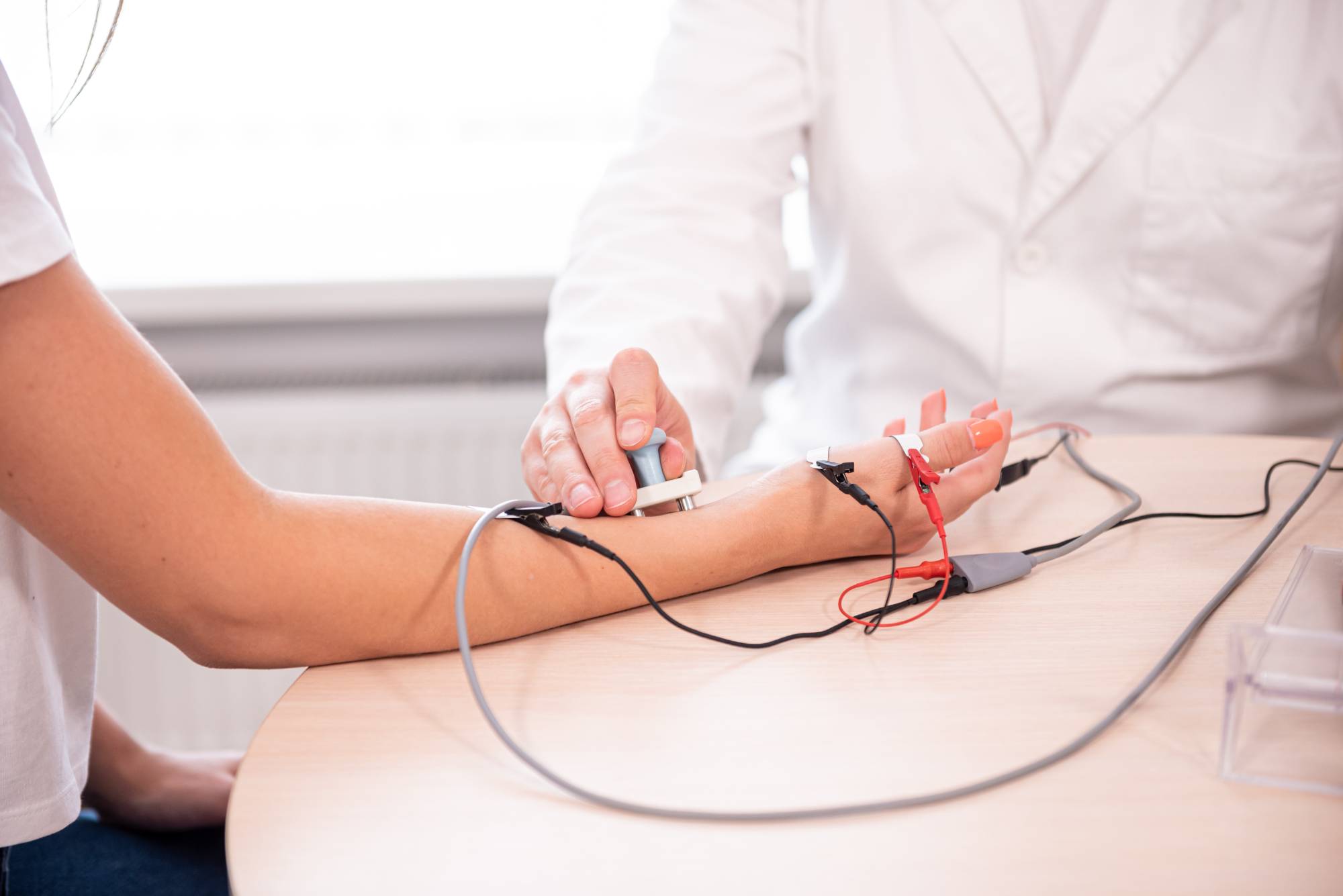
Your EMG test has two parts: nerve conduction study and electromyography. The nerve conduction study comes first, where we place small electrodes on your skin and send mild electrical pulses to measure how fast your nerves carry signals.
Next is the electromyography portion, where we use thin needle electrodes to check muscle activity. Yes, there are needles involved, but most patients find it much more tolerable than they expected.
The entire process typically takes 30 to 60 minutes depending on which areas we’re testing. You’ll get your results right away, and we’ll explain exactly what they mean for your condition and treatment options.
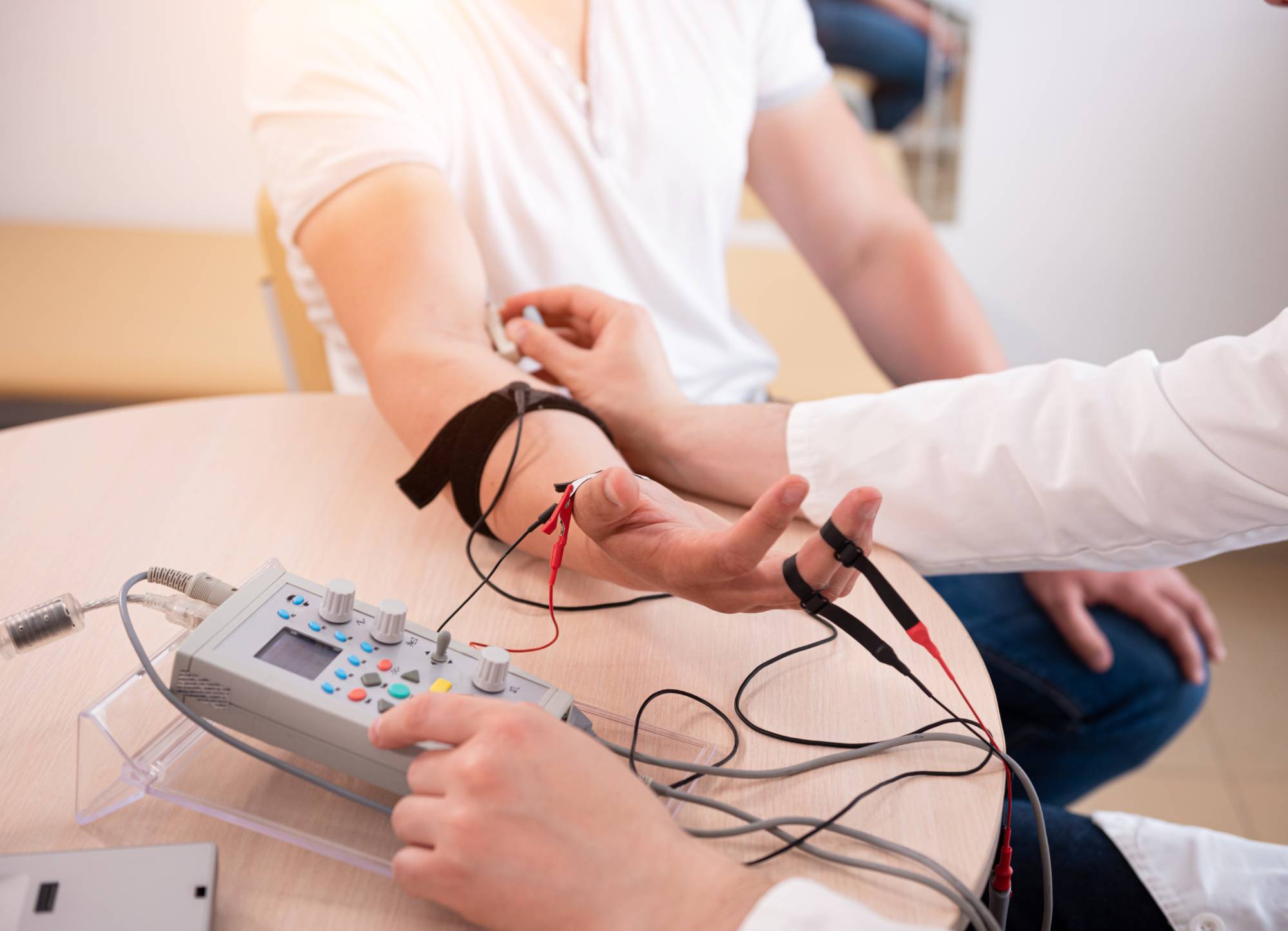
Ready to get started?
Our EMG testing evaluates both nerve conduction and muscle function to give you a complete picture of what’s happening. We test for conditions like carpal tunnel syndrome, sciatica, peripheral neuropathy, and various muscle disorders.
You’ll work with specialists who understand the connection between nerve problems and spine conditions. This isn’t just about running a test – it’s about understanding how your symptoms fit into the bigger picture of your health.
We use advanced electromyography equipment that provides precise measurements while keeping you as comfortable as possible throughout the process. Most patients are surprised by how manageable the testing actually is.
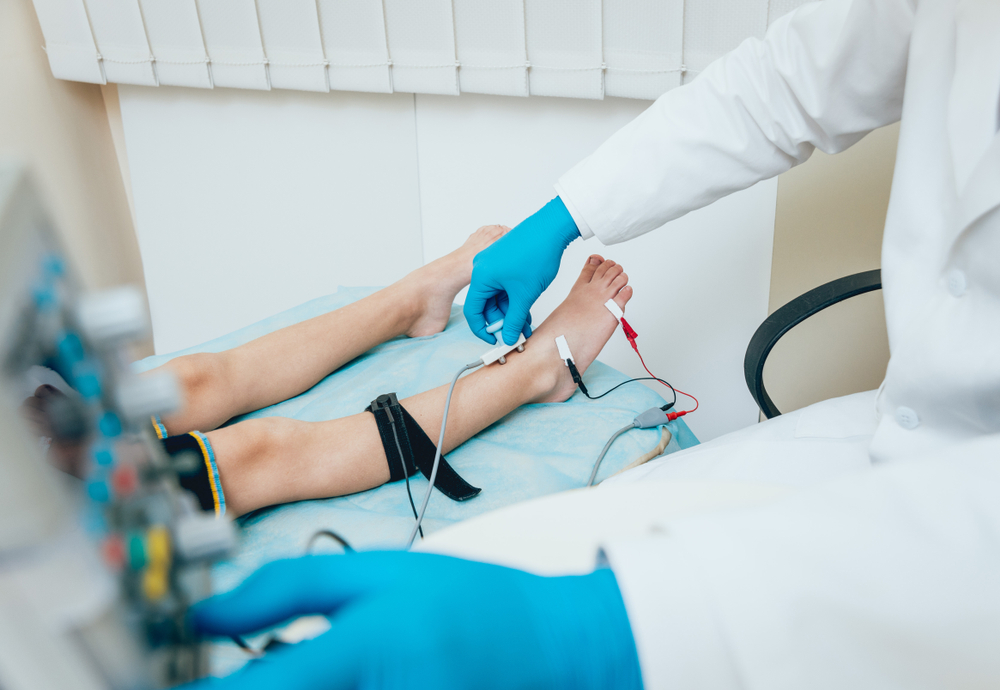
New York:
Florida:
Support